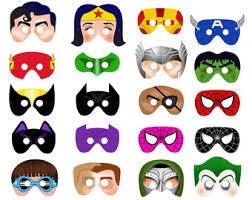 This past week I tidied up from Halloween, placing costumes and decorations in their appropriate storage tub, and trying desperately not to consume all that had been collected on October 31. I witnessed with great interest the life of our parish, the various ways that families observed this occasion, and then made a transition to the high festivals of All Saints and All Souls.
This past week I tidied up from Halloween, placing costumes and decorations in their appropriate storage tub, and trying desperately not to consume all that had been collected on October 31. I witnessed with great interest the life of our parish, the various ways that families observed this occasion, and then made a transition to the high festivals of All Saints and All Souls.
In all of this, it made me wonder how easy it is for us as human beings to make transitions between the various facets of our lives. How do I move from parent to pastor? How do I move from husband to son? How do I adjust my roles from manager to advocate? Do I have to move from Anglican leader to multi-faith dialogue listener? In these various roles, I have certain aspects of responsibility and trust; and at times these positions hold symbols of authority, or covenant, or of respect.
In each of the roles that I hold in my life, I try to use symbols, authority, and rights as a way to uphold and enable others that may be present. That is why I have read with interest the actions of the Archbishop of York, Afra Saskia Tucker in Quebec, and Rob Ford in Toronto. A respected Archbishop cuts up his clerical collar in solidarity with those whose lives have been ‘cut up’ and destroyed by President Mugabe in Zimbabwe. Afra Saskia Tucker in her blog Removing my cross (so that I may find it?) chooses to remove her cross in solidarity with those who may be threatened by the newly proposed charter of values in Quebec. The mayor of Toronto admits to crack cocaine use, thereby removing a mask that has been present in his life and public role for some time.
It seems too simple for us to move between different roles and different images in day to day life. We become shocked when leaders reveal differences and incongruities between their office and their actions. We are encouraged by leaders’ rejection of traditional symbols so as to stand in unity with those who are seeking justice.
I hope that when I stand before a community I do not need any symbol or mask to reveal to those gathered, the intentions of my life and ministry. The actions I offer, I offer in love, out of the essence of who I am, and who I am to be, in the community of faith.
Yet much of popular fiction seems to support the revealing and hiding of identities. Superheroes are held as role models for our children to look to, as well as actors and figures in society that reveal one mask to society, and another in their private lives. Some become shocked when a role model is seen as broken and fallen. Some revel in the strength and tenacity of individuals to keep aspects of life secret and separate from each other.
I strive to be transparent in both my public and my private life, for I do not see it to be of any benefit for people to see me in any different way. I am broken, God redeems me. I make mistakes, I make good judgments. I am respected, I am dismissed.
For me the images of transparency and humility are helpful, for then I strive to see value in growth through adversity. I uphold and wrestle with the challenges that René Girard offers in his understanding of power, justice, and societies in Violence and the Sacred. Superheroes, and the ways in which they respond in the world, hide their true identity, and use the ‘myth of redemptive violence’ model to execute justice: The villain is bad, does bad things, and is disposed of or defeated through violence. This form of response negates the way in which I believe the Christian Way to be.
I hold a position of authority, respect and influence. It is held in the name of others: spouse, children, friends, bishop, parish, colleagues, community. No matter what symbols may be present in my life and ministry, I must breathe justice, love, and humility.

By Tony Houghton November 7, 2013 - 3:10 pm
In the end there will be justice,for a holy God, sin must be payed for, either by the person or those who put their trust in Christ and His redemption. Justice demands it and God is ultimately just. Thank God for grace.
By The Rev. Jesse Dymond November 8, 2013 - 12:24 pm
David, your reflection on masks and roles reminds me of one of my favourite ancient doxologies from the baptism liturgy: “God has united you to Christ: now go, be who you are.” What more can we add?
By PJW51 November 8, 2013 - 11:05 pm
I must try always to be who I am , in the church , in the community in any relationships I have. To be less than that is dishonoring, not to me but those who I am in connection with. And ultimately God himself. May I always try and strive to the real me , no masks.